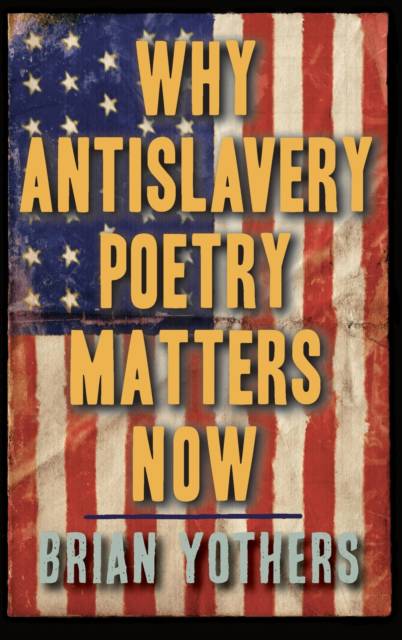
En raison d'une grêve chez bpost, votre commande pourrait être retardée. Vous avez besoin d’un livre rapidement ? Nos magasins vous accueillent à bras ouverts !
- Retrait gratuit dans votre magasin Club
- 7.000.000 titres dans notre catalogue
- Payer en toute sécurité
- Toujours un magasin près de chez vous
En raison de la grêve chez bpost, votre commande pourrait être retardée. Vous avez besoin d’un livre rapidement ? Nos magasins vous accueillent à bras ouverts !
- Retrait gratuit dans votre magasin Club
- 7.000.0000 titres dans notre catalogue
- Payer en toute sécurité
- Toujours un magasin près de chez vous
Description
This book is a history of the nineteenth-century poetry of slavery and freedom framed as an argument about the nature of poetry itself: why we write it, why we read it, how it interacts with history. The poetry of the transatlantic abolitionist movement represented a powerful alliance across racial and religious boundaries; today it challenges the demarcation in literary studies between cultural and aesthetic approaches. Now is a particularly apt moment for its study. This book is a history of the nineteenth-century poetry of slavery and freedom framed as an argument about the nature of poetry itself: why we write it, why we read it, how it interacts with history. Poetry that speaks to a broad cross-section of society with moral authority, intellectual ambition, and artistic complexity mattered in the fraught years of the mid nineteenth century; Brian Yothers argues that it can and must matter today.
Yothers examines antislavery poetry in light of recent work by historians, scholars in literary, cultural, and rhetorical studies, African-Americanists, scholars of race and gender studies, and theorists of poetics. That interdisciplinary sweep is mirrored by the range of writers he considers: from the canonical - Whitman, Barrett Browning, Beecher Stowe, DuBois, Melville - to those whose influence has faded - Longfellow, Lydia Huntley Sigourney, John Pierpont, John Greenleaf Whittier, James Russell Lowell - to African American writers whose work has been recovered in recent decades - James M. Whitfield, William Wells Brown, George Moses Horton, Frances E. W. Harper.
Yothers examines antislavery poetry in light of recent work by historians, scholars in literary, cultural, and rhetorical studies, African-Americanists, scholars of race and gender studies, and theorists of poetics. That interdisciplinary sweep is mirrored by the range of writers he considers: from the canonical - Whitman, Barrett Browning, Beecher Stowe, DuBois, Melville - to those whose influence has faded - Longfellow, Lydia Huntley Sigourney, John Pierpont, John Greenleaf Whittier, James Russell Lowell - to African American writers whose work has been recovered in recent decades - James M. Whitfield, William Wells Brown, George Moses Horton, Frances E. W. Harper.
Spécifications
Parties prenantes
- Auteur(s) :
- Editeur:
Contenu
- Nombre de pages :
- 308
- Langue:
- Anglais
- Collection :
- Tome:
- n° 15
Caractéristiques
- EAN:
- 9781640140691
- Date de parution :
- 20-06-23
- Format:
- Livre relié
- Format numérique:
- Genaaid
- Dimensions :
- 152 mm x 229 mm
- Poids :
- 585 g

Les avis
Nous publions uniquement les avis qui respectent les conditions requises. Consultez nos conditions pour les avis.






